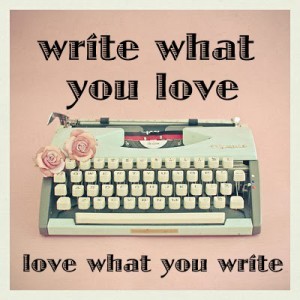Stefanie Wass
- Highlights Foundation writing workshops
- Local SCBWI conferences and workshops
- The Emotion Thesaurus, by Angela Ackerman
- Wired For Story, by Lisa Cron
- Writing The Breakout Novel Workbook, by Donald Maass
- Writing Excuses podcast: Great 15-minute podcast with all thirteen seasons online. Focuses on adult fantasy/sci-fi, but applicable to all writers: https://writingexcuses.com/
- Brandon Sanderson posts all of his lectures on YouTube from his course at BYU. They’re not all in one place, so the best way to find them is just to go to YouTube and search for ‘Brandon Sanderson lectures.
- Scrivener’s ‘target word count’ function. This brings up a box where you can enter your target word count for the session and the overall manuscript, and Scrivener tracks your progress with an amazing color-changing bar.
- Word count tracker spreadsheet by Justin Mclachlan. It allows you to set a monthly word count goal and update daily. It’s on Google Sheets, so your friends can create their own sheets and view yours, giving you an extra boost of accountability, and everything is customizable: http://www.justinmclachlan.com/.../nanowrimo-word-count.../
- 4 the Words is a website that challenges you to battle monsters and complete quests, all by writing more words. I like that it adds a timed element, so I’m not only pushing myself to write words, but I’m making myself do it within a certain time limit: https://4thewords.
- Big Magic, by Elizabeth Gilbert (https://www.indiebound.org/book/9781594634727) – so much in this book resonated with me and encouraged me.
- Grammar Girl (https://www.quickanddirtytips.com/grammar-girl), because even though I understand the whole lie/lay thing, there are other grammatical puzzles I have to look up _every_ time.
- The SCBWI “blueboard” forum (https://www.scbwi.org/boards/) – I haven’t been very active on there lately, but this forum has been a fantastic source of info and a welcoming community of writer-friends for me.
- A.S. King’s “Writer’s Middle Finger” blog series (part 1 is here: http://www.as-king.info/.../the-writers-middle-finger-how...) – I read this series of blog posts when I most needed them, when I was struggling to find my place as a writer, and they helped me write what I needed to write, how I needed to write it. They helped me be me.
- Literary Rambles (http://www.literaryrambles.com/) – I used this site a lot when I was querying agents. Great interviews, info, and link
- Middle Grade Minded (ahem......lol) : http://middlegrademinded.blogspot.com/
- Absolute Writer Water Cooler - not sure how it is now, haven't stepped in in awhile, but I used to frequent this in my early days and it helpded me out a ton. https://absolutewrite.com/forums/forum.php
- Query Tracker - no better way to track your queries and stalk your agents...lol https://querytracker.net/
- Writers Digest - I used this a lot when I was just looking through a bunch of web sites for tips and tricks http://www.writersdigest.com/
- Twitter - i say this only because you find everyone and everything you need on twitter just by talking to people! Use the hashtags! #amwriting #amediting #MG etc. You'll find so many helpful folks
- Query Tracker for finding agents in my genre and reading about response times https://querytracker.net/
- Absolute Write for researching agents to see if they might be a good fit, or if they might be a bad agent
- My Critique Partners. Good Critique partners are worth their weight in gold. Not only will they point out the good, the bad, and the ugly, but they are there for you in the good times and the bad. They can talk you off a ledge if need be. So if you don't have good critique partners, I recommend finding some. The SCBWI forums, Pitchwars Forums, Write On Con Forums (in January/February) and some of the twitter critique partner matchup hastags that happen periodically throughout the year are all great resources for finding critique partners.
- The St. Louis Writers Guild It was the first group of writers I found and they're local to me. I met a core group of writers that I meet up with weekly to write, share ideas, successes, disappointments and advice. They also hold monthly workshops (that are frequently live tweeted on #slwg), the Gateway Con yearly writer's conference, and also do some virtual writing advice sessions. http://www.stlwritersguild.org/gatewaycon.html
- TWITTER, no seriously, I've learned so much from following writers and agents and editors. They share some amazing advice via tweets and blog posts they share. I've probably learned more on there than any other place.
Besides all the great choices above I’d add:
- One Stop for Writers: https://onestopforwriters.com
- Martha Alderson - AKA The Plot Whisperer - wonderful website and newsletter and
- Mary Kole’s wonderful website: https://marykole.com Mary is the author of Writing Irresistible Kidlit






